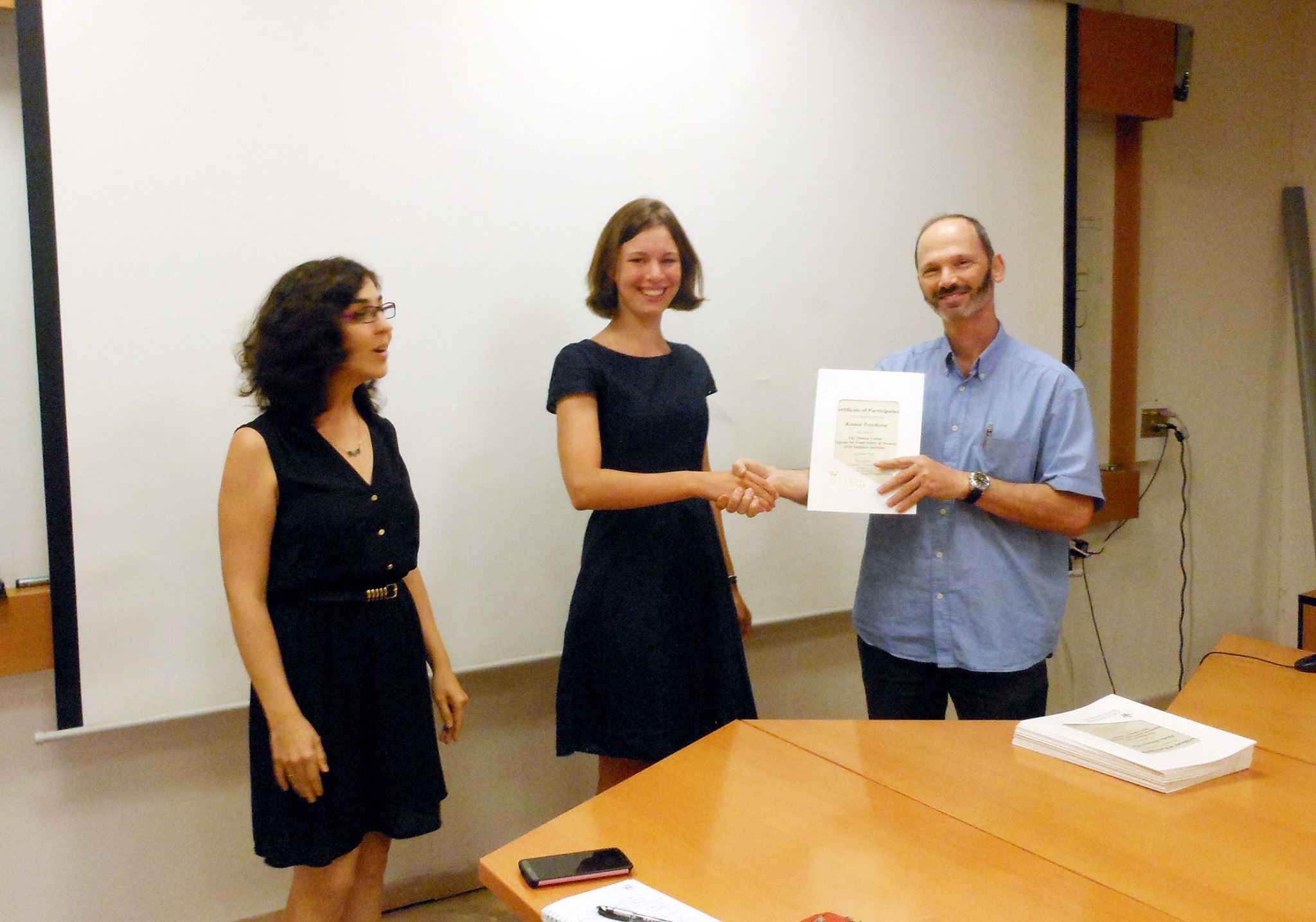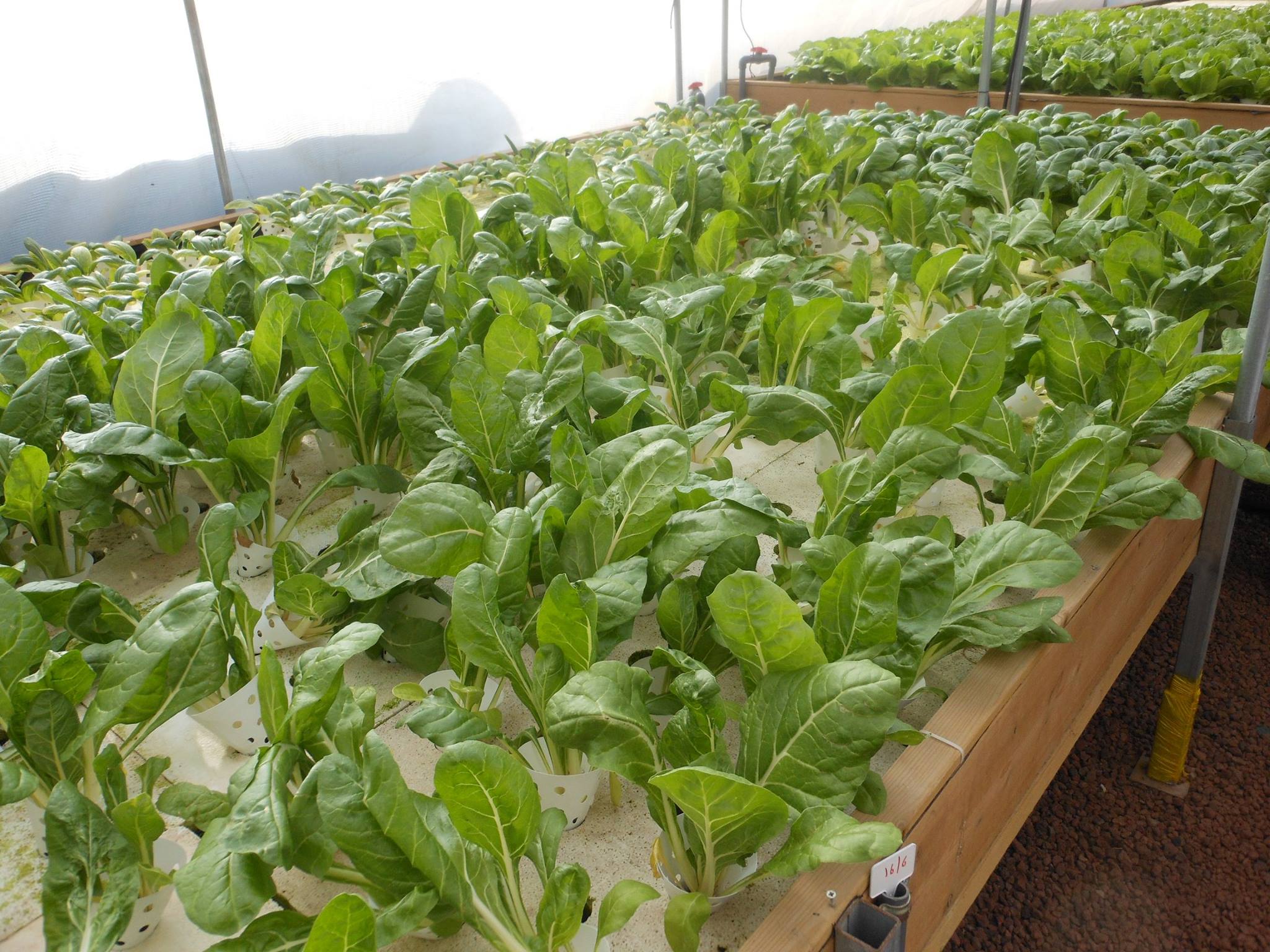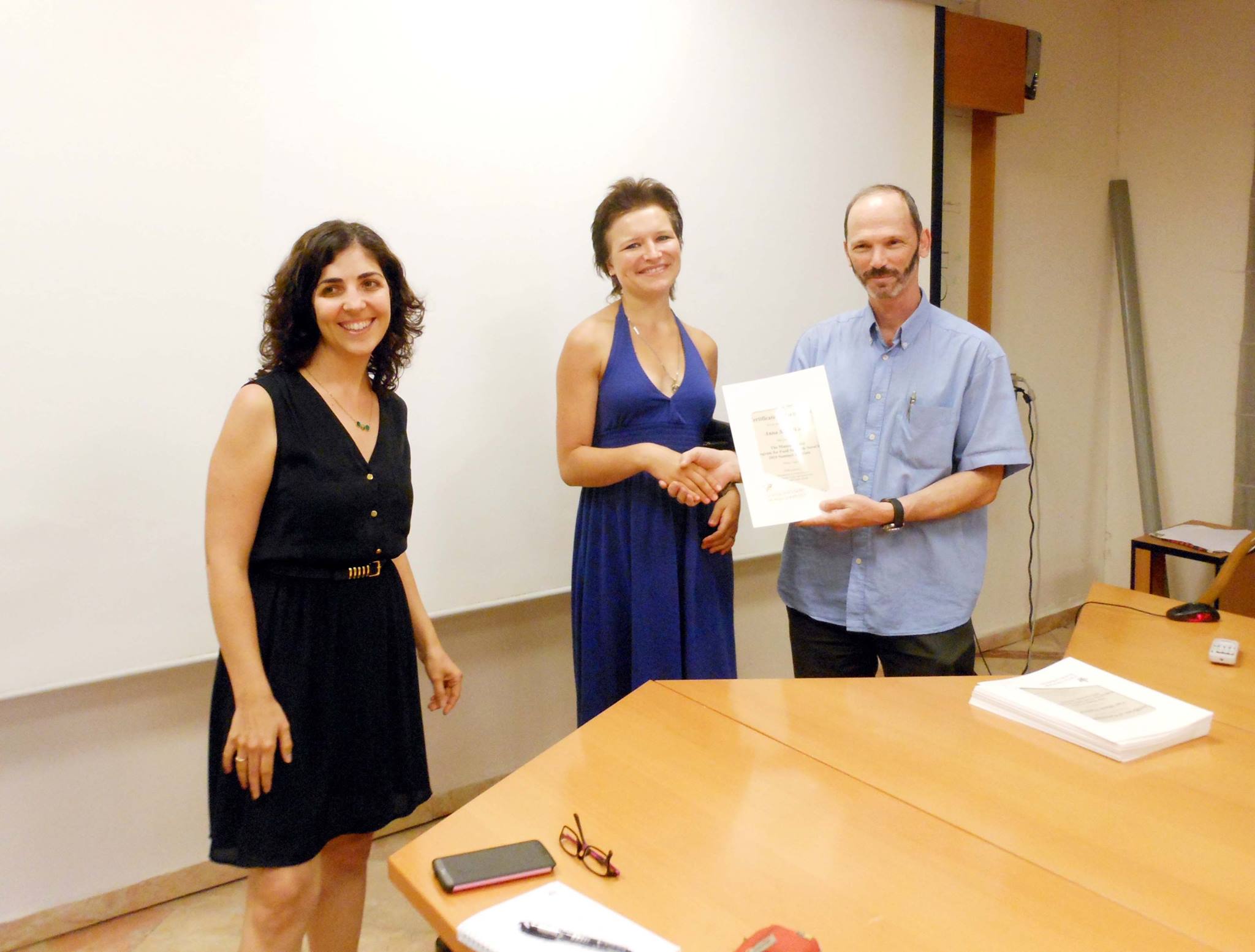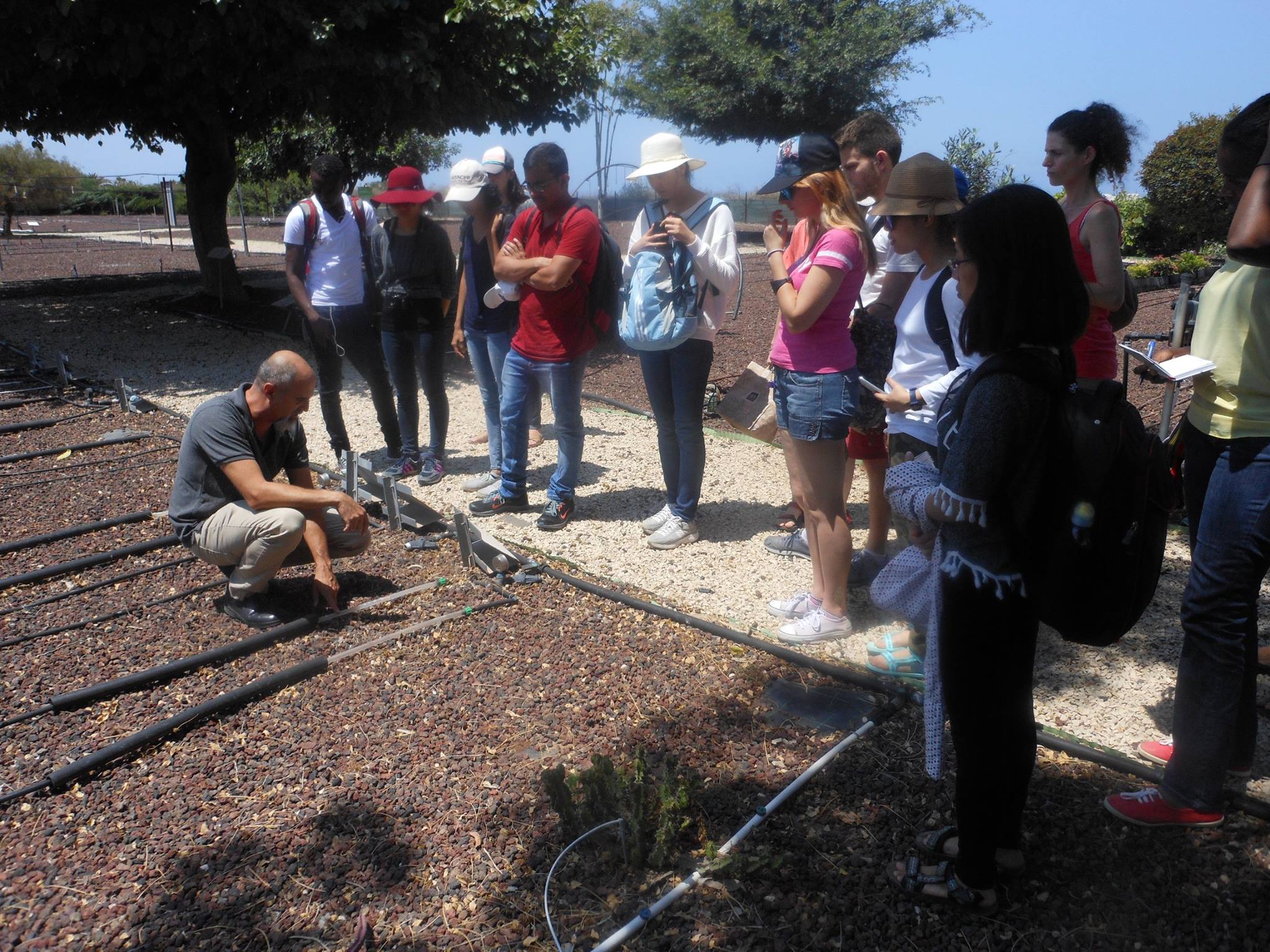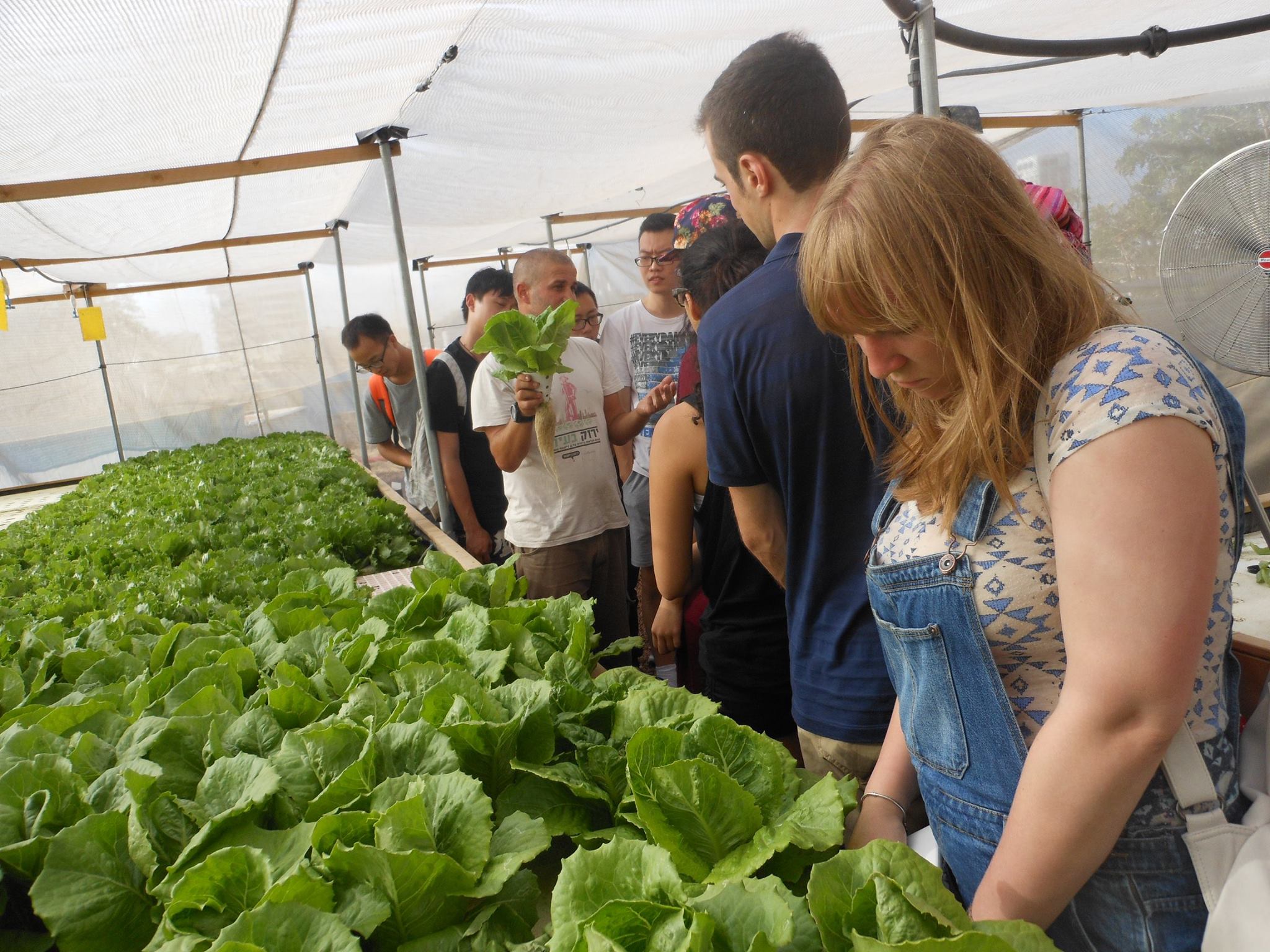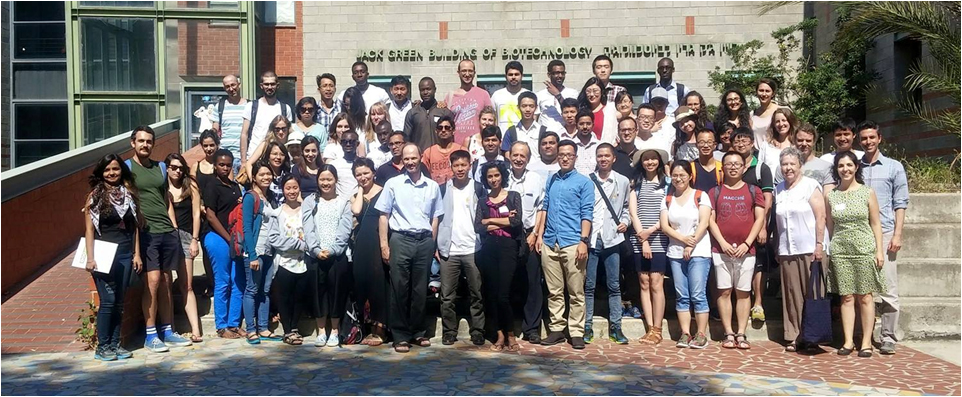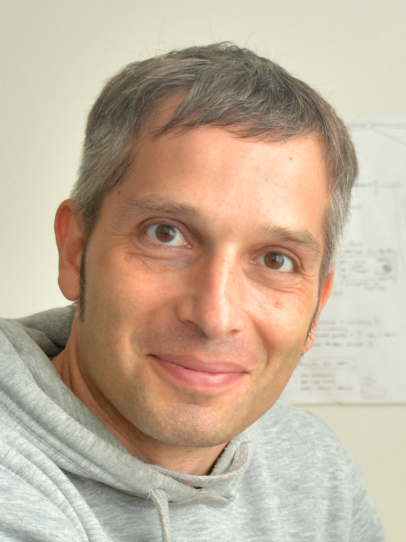Three Skoltech biotech students – Anna Shmelkova, Julia Piskunova and Ksenia Tsvetkova – spent a couple of weeks in Tel-Aviv, Israel. They didn’t come for the beach or for the thriving nightlife. They came to participate in the food safety and security summer school, held in Tel-Aviv University’s Manna Center for Plant Biosciences.
As Skoltech progresses, it covers more areas of research relevant to its core activities. Agriculture is indeed such an area, and within the Center for Data-Intensive Biomedicine and Biotechnology an agricultural program has already been initiated, led by Professor Philipp Khaitovich (see more about the program in the box below). The participation of Skoltech students in the food safety and security summer school is part of the development of the program, and in the same time, a first step in strengthening the cooperation between Skoltech and Tel-Aviv University (TAU).
Upon their return, we asked Shmelkova, Piskunova and Tsvetkova to tell about the summer school and their experience:
Ksenia Tsvetkova: “Two so called tracks were available. The first one, «Agriculture» itself, combined courses devoted to various aspects of plant biology and science-based development of agricultural principles in challenging environments. The other, «Policy and Nutrition», was designed for students specializing in social sciences, economy and public administration.
Despite the School being addressed for graduate students, it combined, in fact, people from various TAU educational programs, and most of them were masters of second or even first year. That fact, together with the interdisciplinarity of the program, resulted in certain limitation of course composition and depths. Yet introductory lectures did give me an inspiration and brought me to the right mindset, even despite being too basic in terms of biology.
The following agro courses, where only students with sufficient bio-background were allowed to take part in, were far better in terms of usefulness. The course «Agriculture in semi-arid conditions» was designed according to genuine Skoltech spirit: it was case based, with each case being real, resulting from natural limitations of environment, emerging disease or changing market demand. Each time the problem was identified, understood and dealt with in a science-based manner. Best specialists in the field are involved each time Israeli farmers are facing difficulties, and those people then come to TAU to present their solutions and explain the principles and theories behind it. Their presentations reveal a strong and working connection between fundamental and applied science, engineering and business, which is the key to success for high-technology farming in any, and not only desert, conditions.
The latter course was followed by an advanced course on «Plant epigenetics in changing environments», which was focused on fundamental aspects of plant biology susceptible for potential control and regulation. The course shed a light on cutting-edge research of Israeli scientists in the field.”
An important part of the summer school’s program was the field trips. Anna Shmelkova describes: “On July 6 we went to Kibbutz Shfayim, which is located 20 min. from Tel-Aviv. During its 70 years of existence, Kibbutz Shfayim has faithfully maintained the agricultural branch as an important part of its income, despite the agricultural crises the State of Israel has endured. In recent years, Shfayim has implemented structural changes in agriculture. These changes include, primarily, the merger of Shfayim Dairy Farm with the neighboring Kibbutz Gaash and Kibbutz Yakum dairy farms, extensive marketing activities and considerable streamlining procedures. These activities, plus the ongoing adoption of advanced technology, have assisted the kibbutz to survive the national crises in agriculture, strengthen the branch, and establish itself as one of the strongest agricultural centers in Israel.
At the end of that week we had another field trip to a place called city-farm or urban farm. The idea is to grow and process food products in urban areas. The growing takes place in flowerbeds within the city on rooftops. Using aquaponic & hydroponic systems, the urban farm grows fresh and clean vegetables and other greens without pesticides, such as lettuce, basil, tomatoes, mint, kale, cucumbers and onions, and also fish. It’s quite an interesting idea for a startup even in our great capital.”
Julia Piskunova completes and concludes: “The third trip was to a few Kibbutzim in the desert, that use advanced technology for non-pesticides growing plants like tomatoes, peppers, potatoes, carrots, chickpeas, cotton. And we saw a water treatment plant, where water that was used in nearest city is treated and used for plant irrigation.
All these trips were very exciting and interesting. I hope that in nearest future students from Skoltech (and me in particular) would have an ability to have hands-on field experience.”
As mentioned above, the students’ participation in the summer school is part of the development of Skoltech agricultural program. They share with us what they think that should be implemented from the course, here at Skoltech.
Shmelkova: “Food safety and security is a very basic necessity for each country, where every individual has access to affordable, nutritious and sufficient amounts of food, grown sustainably, for an active life. From the course we’ve found out how uneven the food consumption per capita is, what kind of nutrition is needed for a human body, that malnourishment is not always lack of food and calories, in case of developed countries people consume a lot of calories, but still malnourished. Also, and what is really important, developed countries finally have understood that putting money into development food safety and security is a very clever and smart investment in economic terms of people resources! Healthy and fit people are more productive, creative and motivated, which is the core of any strong country. Being by definition innovative, i think Skoltech is the place where all these ideas could be introduced and passed to implementation.”
Piskunova: “Skoltech is a place where innovations, technologies and practice combine together. Water safety and water treatment, hydroponic plants growing are our tasks. In Skoltech we have ability to start solving these problems! We can act as role model for whole Russia.”
In general, the students were impressed by the course in TAU, and the hosting city, Tel-Aviv. The impression was mutual, according to Prof. Nir Ohad, Ph.D., the Director of Manna Center’s Program for Food Safety & Security: “We were delighted to have Anna Shmelkova, Ksenia Tsvetkova and Julia Piskunova join us for the 2016 Food Safety & Security Summer Institute. We hosted over 200 students among them 42 came from 12 different countries, participating in 7 diverse courses. The participation of Anna, Ksenia and Julia have contributed immensely to this wonderful blend of students, each bringing their culture and knowledge to a melting pot that generated a wonderful atmosphere and scientific environment for sharing knowledge, ideas and culture.
Anna, Ksenia and Julia were very active throughout the different courses and had much to contribute to the successes of our program. We enjoyed having them with us very much!”
Is this experience a foretoken for further cooperation between Skoltech and TAU? According to senior officials in both institutions, the answer is positive. Danny Chamovitz, Dean of the George S. Wise Faculty of Life Sciences and Director of the Manna Center for Plant Biosciences: “In terms of TAU-Skoltech relations, I’d say the food security summer school was a test case for us to see the quality of Skoltech students and Skoltech to see the quality and appropriateness of the TAU food security program. I think it was a great success. Your students were fabulous, fit in both in the classroom, and in Tel-Aviv, very naturally, and expressed desire to continue in Tel-Aviv. Thus I think that we have a strong basis for expanded future interaction.”
Alexei Sitnikov, Skoltech Vice-President for Institutional Development: “This engagement with TAU over the summer is just the beginning of what we hope to be a very fruitful collaboration in several fields. The discussions about such collaboration began during Skoltech President Alexander Kuleshov’s visit to TAU in the spring of 2016. Tel-Aviv University is one of the world’s leading schools with profound expertise and achievements in many of the areas of research, education and, most importantly, in innovation. We would like to focus our partnership on joint research, student exchange and faculty visits in such areas as food security and agro sciences, computer sciences including the fields of machine learning, cyber security and big data. We would also like to establish partnership is Innovation and support of translational research.”
“We aim to set up an agricultural program which would be doing agricultural research the way it will be done tomorrow”
For more information about Skoltech’s new agricultural program, we addressed questions to Prof. Konstantin Severinov, Director of CDIBB, who pushed through to initiate the program, and Prof. Philipp Khaitovich, head of the program.
Prof. Severinov, why did you choose TAU?
Israel is well-known for its successes in “smart” agriculture and while the problems they face are different from the ones inherent to agriculture in Russia, we certainly need to learn from Israelis, among other things their can-do attitude. TAU is a big comprehensive university and, in addition to the serendipitous fact that Skoltech leadership visited them (there is a few over top universities in Israel and Weizmann Institute may in fact be more in line with the Skoltech education model), they have a top-notch plant science program and they were proactive and came with a well-structured proposal, essentially, an offer, spelling out what they can do for us to help us jumpstart the agricultural program at Skoltech.
Can you describe the negotiation with TAU for the cooperation?
I visited Danny Chamovitz and his center while attending an annual CRISPR conference at Rehovot and the two of us talked as scientist to scientist and openly assessed what is currently possible. The truth is that Skoltech is at the very beginning of its strategic path to development of agro research and education: we do not have the necessary expertise or faculty, and we never selected students with a stated interest in agro-science. We both decided that starting with a student exchange is the only right way to go, as this will allow us to get a feel of how much interest our current biotech students have in this area. Two of my students and one student of Philipp Khaitovich went for the TAU summer course, and as far as I can see there is no regrets, this was an eye opening experience for them and one of my students, Ksenia Tsvetkova is leaving next week for a farm in Krasnodar to collect soil from beet fields to study its microbiota. We will probably have several invited lectures by TAU faculty in the coming academic year. We will probably start looking for new students dedicated to agro research for next academic year and we will ask TAU professors help for a full-blown plant sciences course then.
How do you see the importance of the agro program for CDIBB, Skoltech and Russia?
Skoltech in general and CDIBB in particular, like any other center, must address important societal problems. Agriculture is perceived as an area where Russia is way too dependent on foreign stocks. Development of new stock locally will require lots of time unless new data-intensive technologies that can speed the process up are involved. This is a big challenge but it is also where money necessary for research is, and where interesting science can be done.
Prof. Khaitovich, where does the agricultural program currently stand?
Skoltech initiated an agro program, which started approximately two months ago. There are not yet any formal curriculum for it, so this summer school is actually kind of first event for students, to get some ideas to current trends in food safety and food security, as some kind of embryo for future Skoltech agro curriculum.
Will there be other directions in the agro curriculum, or is it mainly food safety?
Modern agriculture is actually a very technologically heavy industry. Not only in terms of technology as robots or automation, but in terms of data analysis and data processing. It’s not really well appreciated how complex modern agriculture is, in terms of starting automatization, artificial intelligence and information technology, but all these elements are integral parts of modern agriculture. If we want to do it on the modern level, it all has to be included in student preparation and also in the scientific activity done at Skoltech.
Many of us still think about agriculture in terms of the last century or even the century before that, but it changed a lot, and in Skoltech we aim to set up an agricultural program which would not be something that many people imagine. It will be very hi-tech, very data-heavy and analytical instrument-heavy, and which would be doing agricultural research the way it will be done tomorrow.When would the program start?
In this coming September I think we will not have specific courses for agriculture. The courses in the first, and even the second terms, will be prerequisites for more advanced courses, because actually there are also different branches of things, started from molecular biology and they opened new algorithms and new analytical tools. We plan to have a more high-level courses in the curriculum, which will deal with issues in current agriculture, and show the students tasks, problems and solutions which are currently existing.
Are there any plans to cooperate with other Skoltech centers?
There are not only plans for it, but it is already written in the Skoltech agricultural document. Both CDISE and the Space centers are part of it.
What about ministerial and industrial partners?
Absolutely, there is a connections with the ministry of agriculture, and we also signed a contract with some big, really big, industrial agricultural companies.
